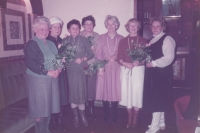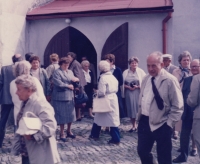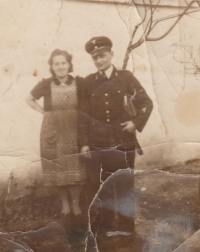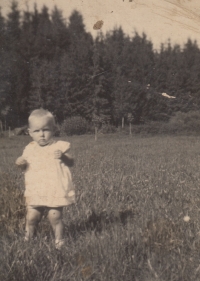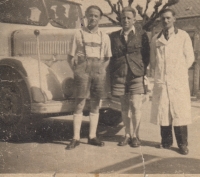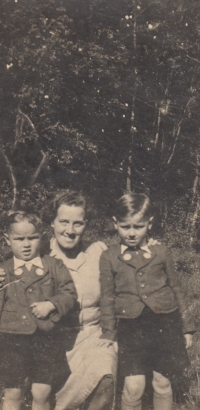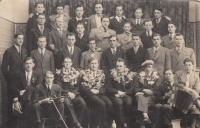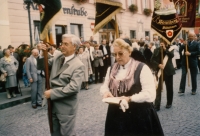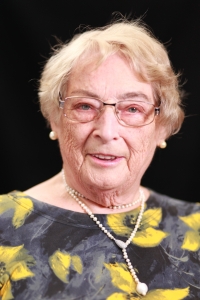A tree without roots cannot stand and falls down. A man is just like a tree – he needs his roots.

Download image
Elfriede Weismann was born on 18 December 1935 in Kaplice in South Bohemia. Both of her parents were of German nationality. Her father, Friedrich Reich, completed compulsory military service with the Czechoslovak army during the First Republic, and in the autumn of 1938 he took part in the mobilization. After Munich Agreement, Kaplice became part of the German Empire, and her father had to enlist in the Wehrmacht. Elfriede lived through World War II with her mother and three younger siblings in Kaplice. On 7 November 1945, they were forced to leave for Linz in Austria, where they later reunited with their father and began a new life. Elfriede trained as a hairdresser. She got married in 1955 and together with her husband they raised three children. Elfriede became involved in associations of expelled Czech Germans. In 1968, she visited her birthplace for the first time in twenty-three years. After the fall of the Iron Curtain, she regularly returned to her homeland. She pushed for creation of the memorial to the victims of expulsion in the cemetery in her native Kaplice. In 2020, Elfriede Weismann lived in Linz, Austria. She regularly met with the last living natives of Kaplice.
